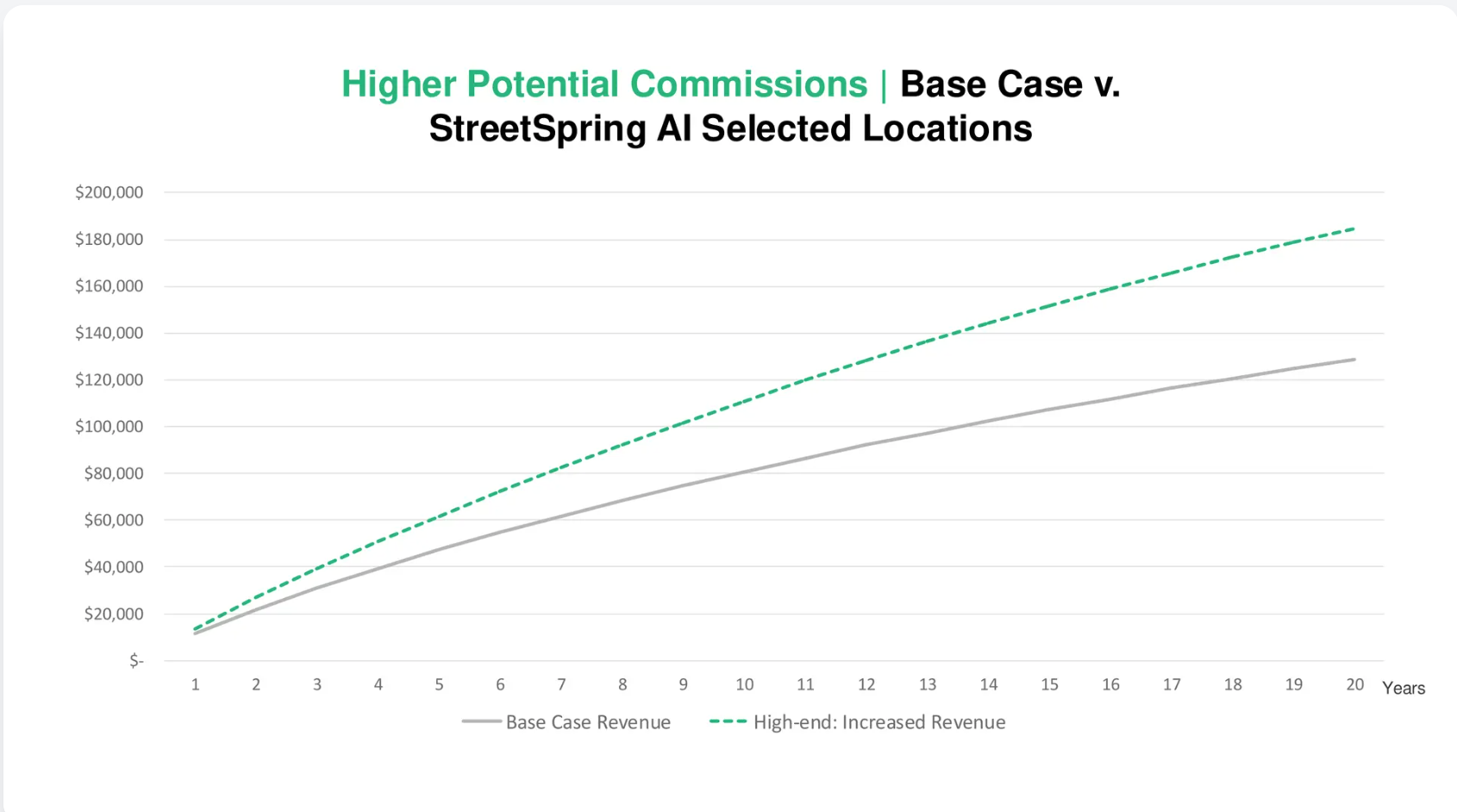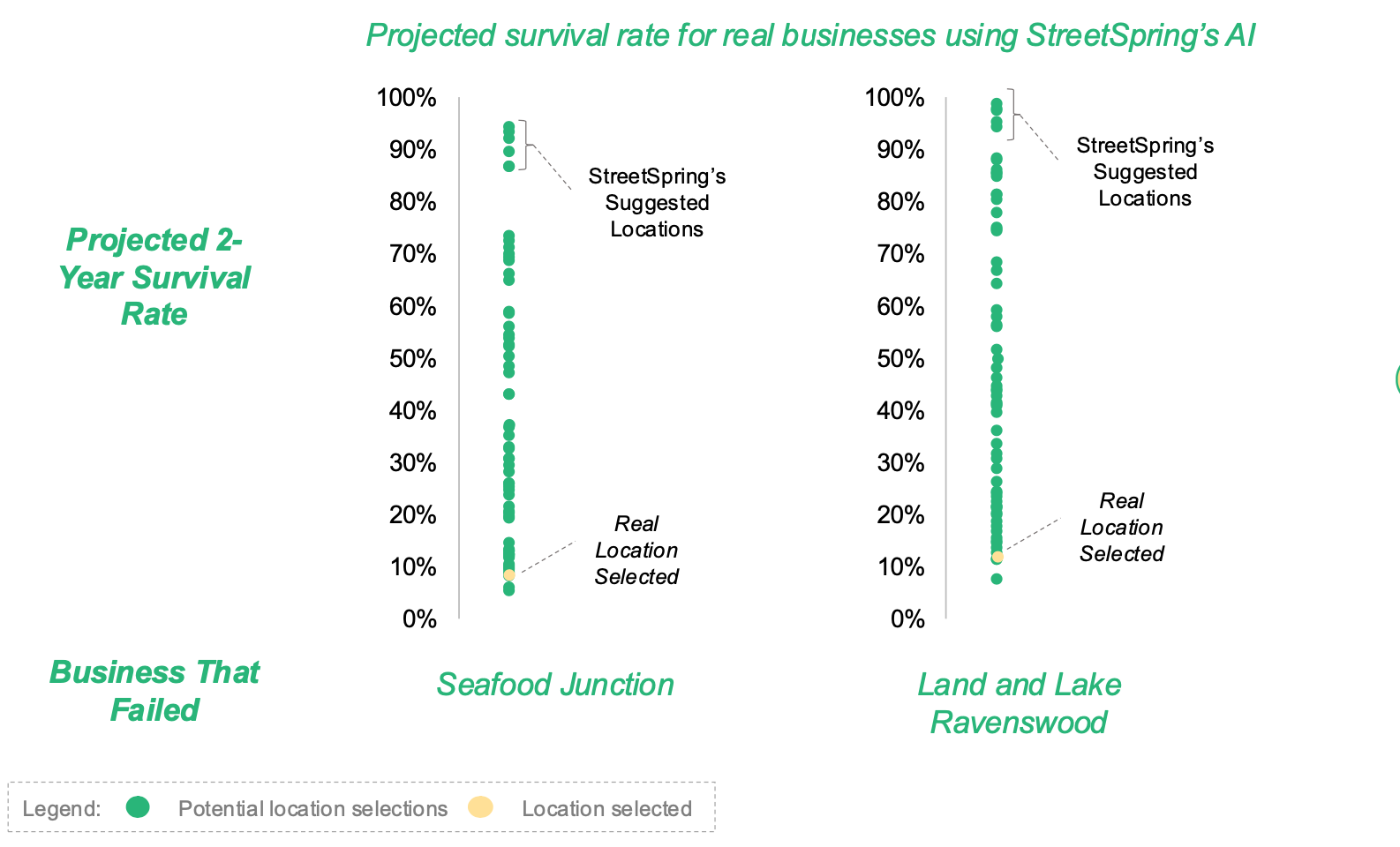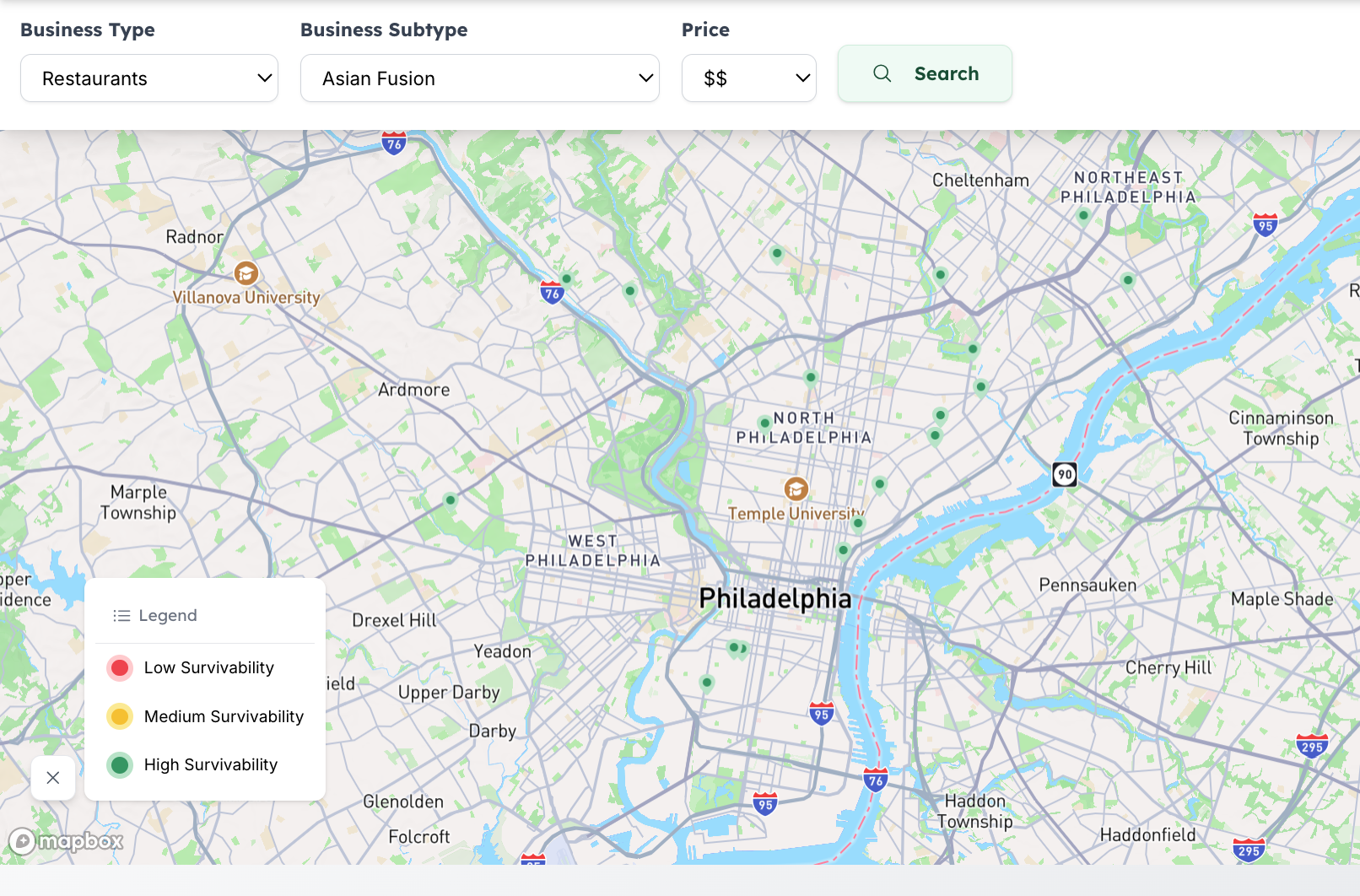How Landlord Representatives in Philadelphia Can Reduce Vacancy & Increase Tenant Longevity
Learn how StreetSpring’s landlord rep analytics software helps Philadelphia landlords reduce vacancy, improve tenant retention, and forecast long-term business success using predictive AI insights.
How Landlord Representatives in Philadelphia Can Reduce Vacancy & Increase Tenant Longevity
Philadelphia landlords face one of the toughest challenges in commercial real estate: keeping spaces filled with tenants who stay long-term. Every empty storefront or early lease termination means lost income, higher maintenance costs, and reputational risk.
StreetSpring simplifies this problem with its landlord rep analytics software—an AI platform that predicts which tenants will thrive based on rent, consumer spending, competition, and market data.
This article explores how landlords can use predictive leasing analytics to reduce turnover, increase occupancy, and build more resilient portfolios across Philadelphia.
Why Tenant Turnover Hurts So Much
High turnover is one of a landlord’s biggest hidden costs. Every empty month brings:
- Lost rental income ($5,000–$25,000+ in prime corridors)
- Marketing and broker fees
- Cleaning and renovation expenses
- Delayed occupancy and investor frustration
Beyond Financial Loss: Market Perception Matters
Buildings known for short-term tenants develop reputational issues—making it harder to attract quality tenants in the future.
Sustainable occupancy isn’t just profitable—it’s essential for long-term property value.

The Data-Driven Way to Reduce Turnover
StreetSpring’s predictive leasing tools analyze over 87 variables across 15+ datasets, generating a Survivability Score—a “compatibility index” between a business type and property location.
Example
- Boutique gym in Fishtown: 92% survivability
- Café next door: 68% survivability
These insights help landlords prioritize tenants with the highest probability of success and reduce early exits.
For deeper context, see Business Location Analysis & Survivability (Philadelphia).
How StreetSpring’s AI Works for Landlords
StreetSpring’s AI-driven landlord rep software learns from thousands of real commercial outcomes across Philadelphia.
Key Analytics Used
- Consumer Expenditure (CEX): Measures whether local spending supports tenant category.
- Competition Density & Quality: Evaluates saturation and competitive strength.
- Rent Efficiency: Compares pricing vs. performance potential.
- Mobility & Accessibility: Tracks walk, bike, and transit behavior.
- Demographic Fit: Aligns business type with neighborhood demographics.
These analytics help landlords select the right tenants and avoid mismatches.
Explore more on consumer spending trends in Consumer Expenditure (CEX) & Growth Analysis.

Example: Matching Tenants to Long-Term Success
Two similar South Philly retail units—one thrives, one constantly re-leases.
- The struggling site attracts tenants misaligned with local demographics.
- The thriving site meets neighborhood demand.
StreetSpring’s model reveals why: daycare = 90% survivability, boutique retailer = 62%.
These insights turn leasing intuition into measurable predictions.
To understand the tenant perspective, read AI Tools for Tenant Reps in Philadelphia.
The Role of Landlord Rep Analytics in Modern CRE
Today’s landlord representation requires data precision. Experience matters—but AI enhances accuracy and trust.
Key Advantages
- Forecast tenant success with predictive scoring
- Build investor confidence through transparent metrics
- Shorten deal cycles via automated reports
- Identify portfolio risks early
StreetSpring empowers reps to back every recommendation with quantifiable proof.

Increasing Occupancy Rates with Predictive Insights
Vacancies are inevitable, but prolonged ones aren’t. StreetSpring’s software identifies and retains high-fit tenants faster.
Actionable Insights for Landlords
- Tenant categories in highest demand
- Submarket competitiveness analysis
- Spending growth by area
- Retention pattern forecasting
For location-level predictions, see Philadelphia Site Selection Software (AI Location Intelligence).

Building Investor Confidence with Data
Quantitative leasing insights increase trust among stakeholders.
Example:
“StreetSpring forecasts a 93% two-year survival rate for restaurants within one mile of your site.”
Such statements prove that leasing decisions are data-driven, not speculative.
Strengthening Tenant Retention Strategies
StreetSpring continues adding value after tenants move in through ongoing analytics.
Key Retention Features
- Demand Forecasting: Anticipate market and demographic shifts.
- Competitor Tracking: Detect nearby openings and closures.
- Rent Sensitivity Modeling: Assess impact of rate adjustments.
By anticipating change, landlords prevent churn before it starts and maintain steady occupancy.
FAQs: Landlord Rep Analytics in Philadelphia
Q1: How does StreetSpring predict long-term tenants?
It evaluates rent, competition, and consumer dynamics to forecast tenant survivability.
Q2: Is it useful for small landlords?
Yes—StreetSpring scales from enterprise CRE to individual owners.
Q3: Can it analyze multi-property portfolios?
Absolutely. Compare multiple addresses for tenant longevity and risk patterns.
Q4: How much can it reduce turnover?
Users report up to 67% fewer early exits compared to traditional leasing.
The Future of Landlord Representation in Philadelphia
The next decade of Philadelphia CRE will be shaped by AI leasing analytics.
StreetSpring turns landlord representation into a predictive science—forecasting tenant longevity and maximizing return on every square foot.
Result: Higher retention, lower costs, stronger portfolios.